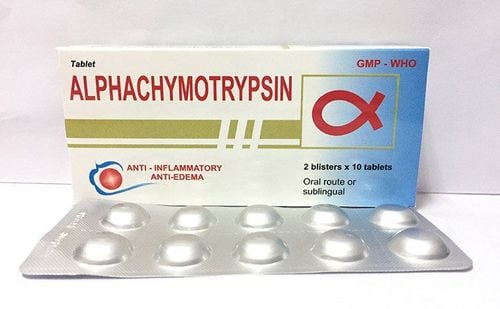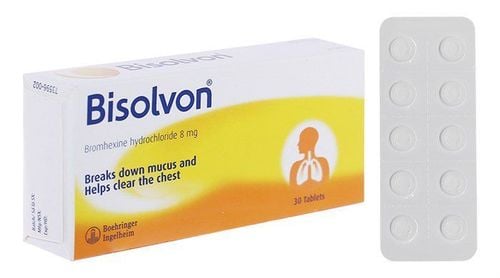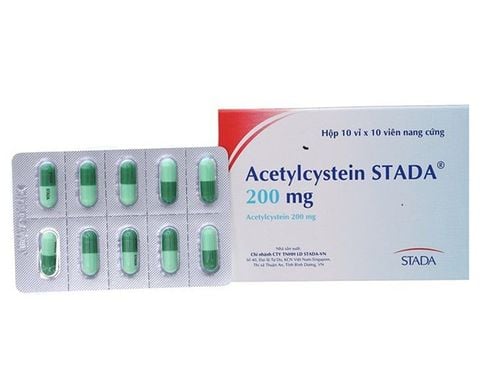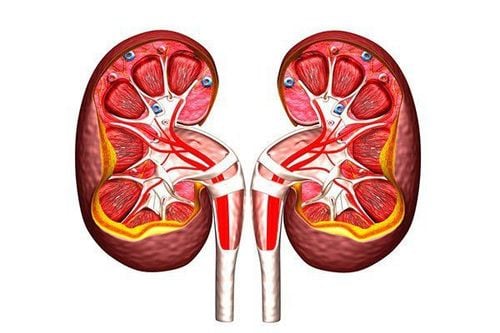This article is professionally consulted by pharmacist Nguyễn Thị Bích Phượng, Department of Pharmacy, Vinmec Hạ Long International Hospital.
The active ingredient of Acemuc is acetylcysteine, an expectorant and mucolytic agent used by both adults and children.
1. Ingredients and effects of Acemuc
This medication has a mucolytic effect due to a free thiol group (-SH), which reduces the thickness of mucus in the lungs and contributes to expelling phlegm easily through the ciliary system, coughing, postural drainage, or other mechanical methods.
Acemuc is not an antibiotic but is used for respiratory diseases characterized by thick phlegm and increased respiratory mucus secretions by thinning the mucus and making expectoration easier.
In addition, acetylcysteine (at very high doses in the form of oral solution or intravenous infusion) is also used for paracetamol (acetaminophen) detoxification (overdose).
2. Forms and dosage strength of Acemuc
Acemuc is currently available in two common forms: hard capsules and granules for oral solution.
For the hard capsule form, the medication is available in 200mg. The granules for oral solution are available in Acemuc 100mg sachets and Acemuc 200mg sachets.
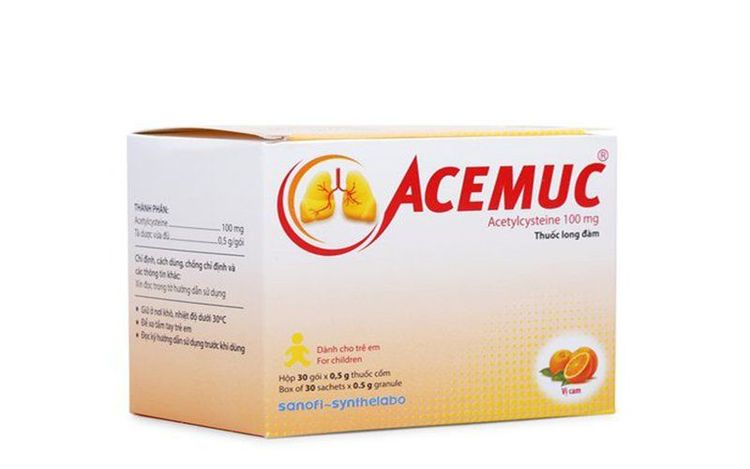
3. Dosages of Acemuc for adults and children
The recommended dosages:
- Children aged 2 to 7 years: 200mg per dose, twice daily.
- Adults and children over 7 years old: 200mg per dose, three times daily
- Not recommended for children under 2 years old.
During medication use, you should drink plenty of water and combine chest percussion to thin mucus further and clear it from the lungs.
4. Contraindications and precautions to consider:
Do not use this medication for the following patients:
- Hypersensitive to any component of the medication
- History of bronchial asthma
- Inherited phenylketonuria
- Children under 2 years old

Precautions when using this medication for the following patients:
- The patients cannot cough or the ability to cough is reduced
- Peptic ulcer, liver failure
Inform your doctor if you are taking cough medicines, antibiotics, or angina (chest pain) medications because these can interact with Acemuc.
5. Side effects of Acemuc
When using this medication, you may experience some rare but dangerous side effects, such as bronchial spasm, systemic anaphylaxis reactions (rash, dysphagia (difficulty swallowing), dyspnea (shortness of breath), swelling of mouth, lips, and throat), and shivering. If you have any of these symptoms, you should come to the nearest medicine center immediately and inform the healthcare providers about the medication you have taken for timely management.
In addition, you can experience some side effects on the digestive tract such as nausea, vomiting, diarrhea, and abdominal pain.
To arrange an appointment, please call HOTLINE or make your reservation directly HERE. You may also download the MyVinmec app to schedule appointments faster and manage your reservations more conveniently.




